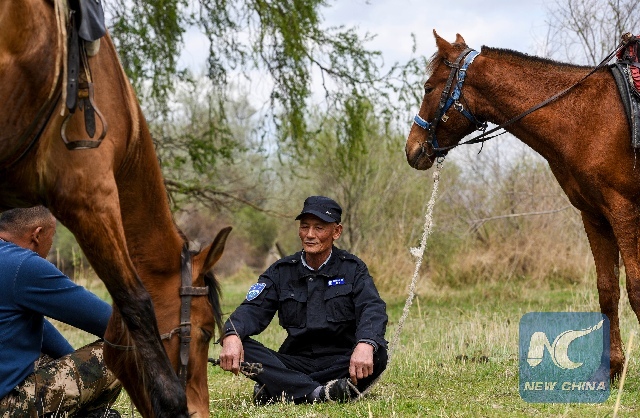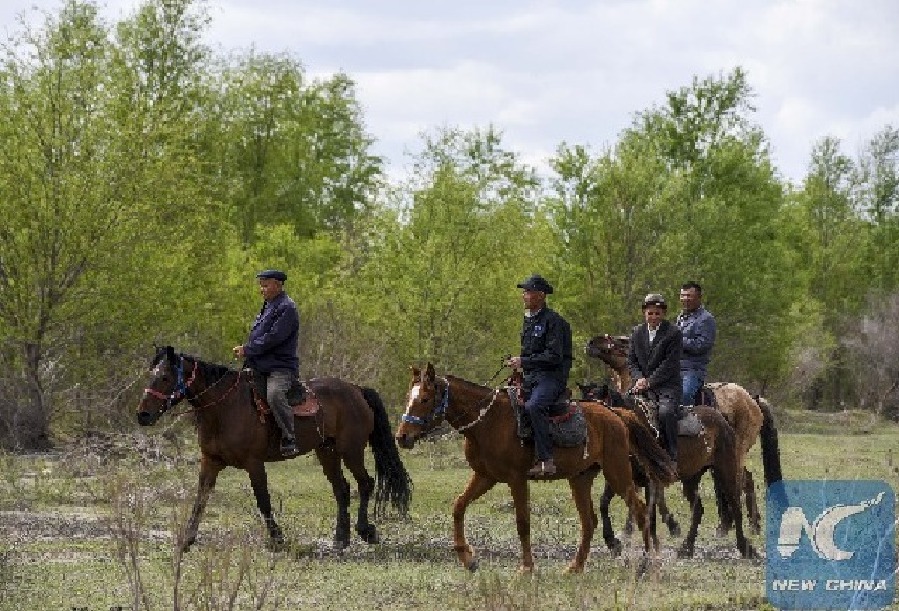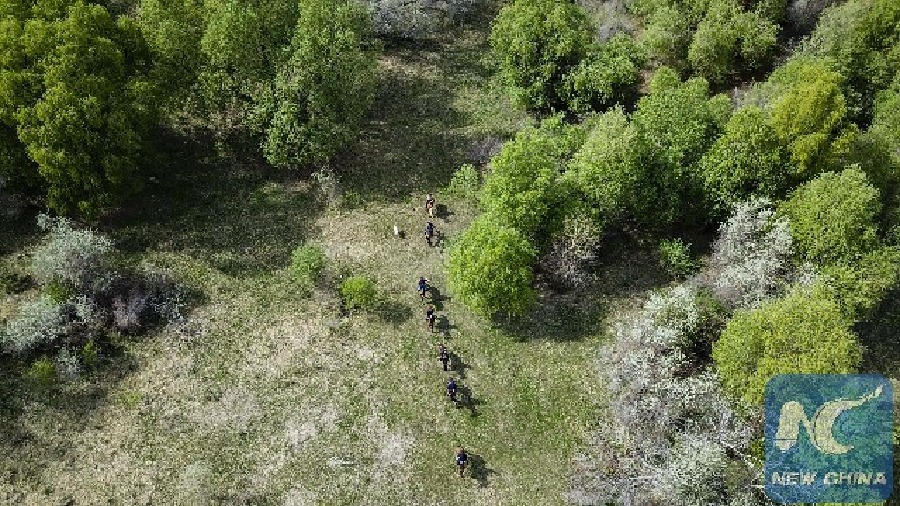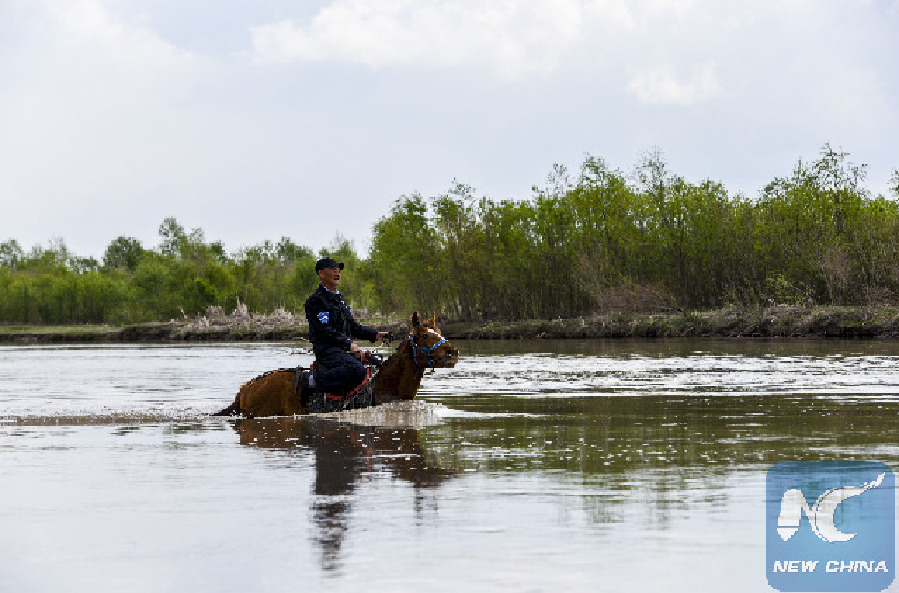
Kadirjan and his patrol team have a rest in the forest. (Xinhua/Hu Huhu)
On a winding, muddy path in the Ili River Valley, 56-year-old ranger Kadirjan mounts his horse and rides into the forest. It is the start of a workday, and not unlike any of the others he has set out on over the past 25 years.
Kadirjan is on the front line, protecting the forest from fire, illegal logging and poachers.
"I know every path here," he says. And so he should, he has seen firsthand the growth and prosperity of this dense woodland.

Kadirjan is patrolling with other team members. (Xinhua/Hu Huhu)
The forest, which stretches for 1,200 hectares, is fed by the Ili River, which runs through China's far-western autonomous region of Xinjiang for 495 kilometers before heading into Kazakhstan.
Kadirjan lives in a small village close to the forest. Most of the time, he patrols alone. His uniform is always neat, and freshly pressed, and he straightens the badges on his chest and arm before he rides to work.
The small village is over 700 kilometers away from the region's capital city Urumqi, and as recent as ten years ago, information about environmental protection was slow to reach the village. As a result, there were often disputes about the problems caused by hunting and grazing.

An aerial view of the patrol team in the forest. (Xinhua/Hu Huhu)
In the recent three to four years, however, Kadirjan says the forest has grown denser because more villagers understand how important it is to patrol, and many sometimes volunteer to help.
This means that Kadirjan no longer has to ride alone. There is now a local team of over 30 locals that patrol the river and the forest. Kadirjan is very proud.

Kadirjan is riding his horse to cross the Ili River. (Xinhua/Hu Huhu)
Helicopters and modern equipment, including satellites and remote surveillance systems, are also assisting the teams' work. Last month, Kadirjan got a motorbike. But his preferred mode of transport will always be on horseback.
With four years until he retires, Kadirjan is upbeat that he will have an "ecological legacy" to pass down to the coming generations.

